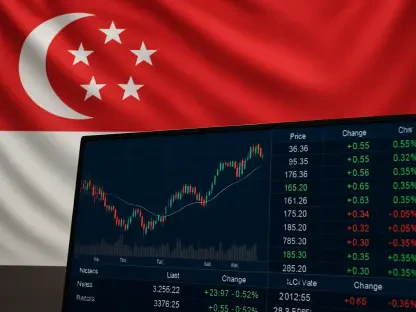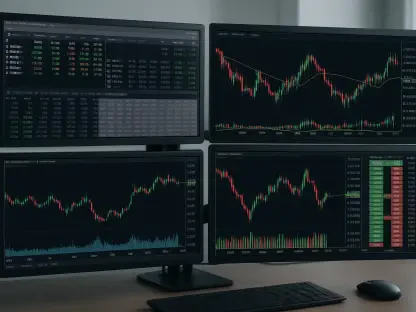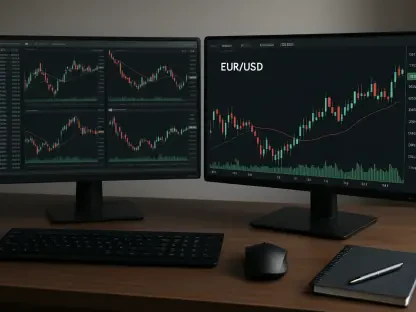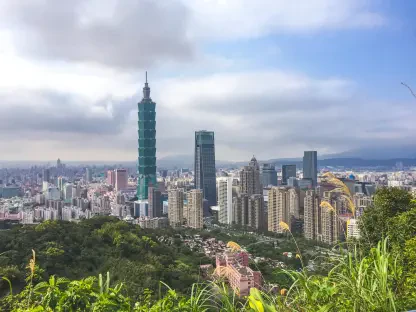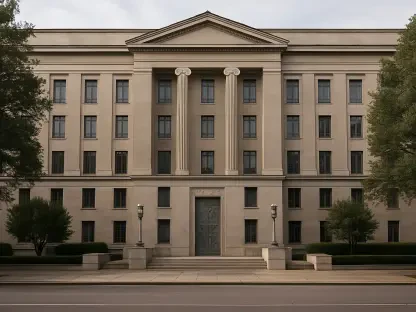In a remarkable turn of events, Libya’s latest energy exploration tender has piqued significant global interest, drawing fierce competition from major oil companies. Following years of political instability and conflict post-2011, Libya’s oil industry is experiencing a resurgence. Notable names such as Chevron, TotalEnergies, Eni, and Exxon Mobil headline a list of 37 contenders vying for a piece of Libya’s bountiful oil reserves — an emblematic signal of confidence in the nation’s potential for stability and economic growth. This tender is seen not just as a commercial opportunity but also as a pivotal moment in Libya’s journey toward regeneration in the global energy arena. Recognizing Libya’s strategic position, the international energy community acknowledges the tender as a chance to tap into vast reserves at a time when geopolitical shifts and environmental policies increasingly influence energy strategies. With contracts anticipated to be finalized by the end of the year, the tender offers groundbreaking opportunities for Libya to reassert itself on the global stage. However, this optimism is tempered with caution as the nation’s political landscape remains a volatile backdrop, posing significant risks for potential investors aiming to establish a footprint in its energy sector.
Strategic Geopolitical Position
Libya’s notable geographical advantage holds immense strategic value for the international oil and gas market, given its proximity to both European and African markets. It serves not only as a gateway for energy supplies but also as a critical focal point in a complex interplay of regional dynamics and energy demands. Situated along vital maritime routes, Libya offers potential investors a logistical advantage, facilitating efficient market entry and expansion. This positioning becomes particularly crucial as countries and corporations strive toward energy security amid global uncertainties. The reinstatement of Libya’s energy tender comes against a backdrop of shifting energy policies around the world, where regions rich in hydrocarbons are actively courted by energy-hungry nations seeking diversification of supply chains. Libyan oil, known for its high quality and relatively low extraction costs, presents an enticing proposition for companies eager to secure stable supplies and manage operational costs effectively. The vast reserves remain largely untapped due to previous conflict and instability, making them an attractive target for exploration and production initiatives. Industry giants like Chevron, TotalEnergies, and Exxon Mobil, along with numerous other contenders, perceive this tender as a golden opportunity to reinforce their presence in the Mediterranean energy mix and the larger global market.
Challenges Amid Political Uncertainty
While the prospect of rejuvenating Libya’s energy sector is promising, potential investors cannot ignore the persistent challenges posed by Libya’s political climate. Even as the country makes strides towards stability, its political landscape is characterized by fragile peace and sporadic unrest. This volatile environment necessitates careful consideration and strategic risk assessment by international entities eyeing Libya’s energy opportunities. Companies must weigh the lucrative prospects against political and security challenges, managing both operational and on-ground risks. The state-run oil company is actively working to project an image of reliability and stability by courting foreign investments, signaling a concerted effort to demonstrate progress and foster economic reform. Yet the specter of civil unrest and political fragmentation looms over the tender process. The enduring presence of competing factions and unresolved governance issues complicates foreign entities’ decisions. The challenge lies in constructing a secure and transparent investment framework that appeals to investors while addressing these intricate political realities. Until robust governance and policy consistency are established, the enthusiasm for the tender will be consistently challenged by apprehensions inherent to the Libyan milieu, moderating risk appetite in favor of thorough diligence and strategic foresight.
Vision for Economic Prosperity
Embedded within Libya’s energy exploration tender is a potential catalyst for extensive economic revitalization. Beyond immediate commercial interests, successful energy sector investments promise significant national impacts, including infrastructure advancement, employment generation, and enhanced government revenues. Such economic activity forms an integral part of post-conflict nation-building, with foreign partnerships fueling local development efforts to create a stable economic foundation. Proponents argue that realizing Libya’s oil production potential could stimulate wider socio-economic benefits, accelerating reconstruction and providing necessary resources to invest in sectors beyond oil and gas. This could ultimately position Libya as a regional economic powerhouse. The onus, however, lies on fostering a business-friendly environment supported by policy transparency, regulatory alignment, and investor protections. These elements are crucial to generating sustained foreign interest and catalyzing broader economic reforms that underpin long-term stability and growth. Multinational corporations investing in Libyan oilfields have opportunities to impact regional development positively through technology transfer, local partnerships, and capacity-building initiatives. Therefore, Libya’s energy tender not only presents economic opportunities for foreign entities but also a pathway for joint prosperity, balancing profit with social responsibility.
Path Forward in Global Energy Dynamics
The developments unfolding in Libya’s oil tender fit into a broader narrative reflecting evolving global energy paradigms. As governments and corporations confront climate targets, resource management, and geopolitical tensions, there is a persistent push for diversified, reliable energy portfolios. Libya’s energy reserves contribute to a nuanced strategy of blending traditional hydrocarbons with emerging practices in sustainability and climate awareness. Companies participating in this tender recognize the dual imperatives of securing energy resource access and adhering to global standards of environmental responsibility and technological advancement. Libya’s vast energy resources offer key advantages in the pursuit of sustainability, providing avenues for technology-driven exploration that may concurrently reduce environmental footprints. This aligns with the global industry’s move toward smarter, cleaner energy extraction and production. Strategically, the tender allows for exploration investments that cater to balancing immediate energy demands and the long-term discourse of climate change mitigation and adaptation. Thus, while addressing economic challenges and striving for political stability, Libya’s tender exemplifies the ongoing reevaluation of energy priorities that bear potential impacts far beyond immediate confines, resonating with global initiatives seeking energy security and resilience.
Reflecting on Libya’s Complex Landscape
Looking back on the intricate dynamics of Libya’s energy exploration tender, it’s evident that this initiative sits at the intersection of opportunity and complexity. Although the process of reviving Libya’s oil industry invites genuine optimism, the journey toward achieving stable economic development is fraught with challenges unique to its political and socio-economic landscape. The country stands on the precipice of change, contending with the dual pressures of capitalizing on abundant natural resources and accommodating diverse geopolitical interests. For Libya, success will hinge not simply on securing investments but on fostering an environment reinforced by political will, effective governance, and sustained commitment to reforms. The decisions made in the coming months will shape Libya’s role within the energy sector and its contribution to regional stability. By balancing ambition with pragmatism, and aligning national objectives with collaborative efforts, Libya’s potential can be realized, ultimately driving its transition from a resource-rich nation to a linchpin of economic vitality and energy security in an interconnected world.


